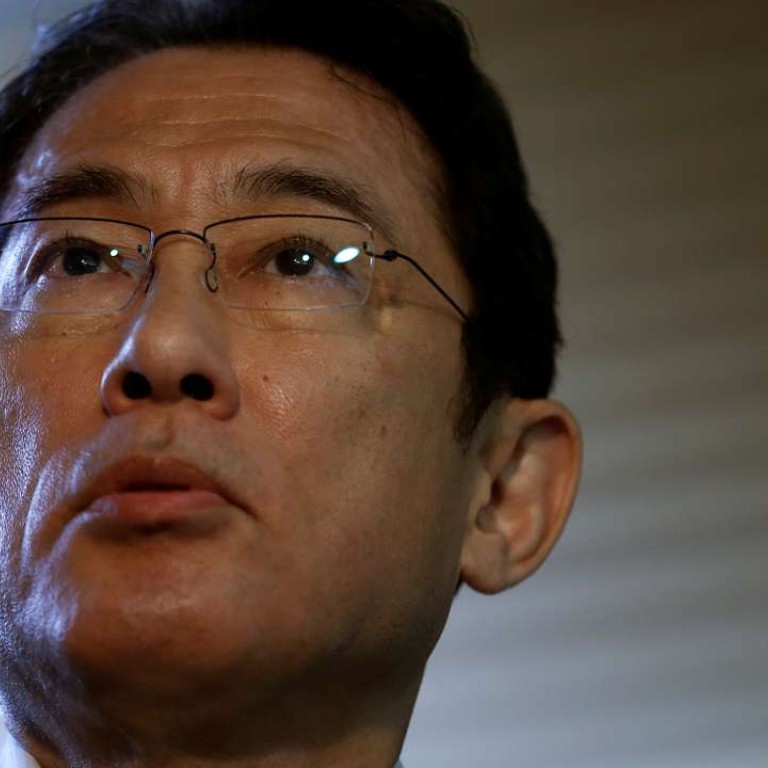
Japan rejects extra measures on ‘comfort women’, citing deal struck with Seoul last year to close matter
Japan does not believe it needs to do more to settle the issue of Korean women forced to work in wartime brothels for the Japanese military on top of the deal already struck, Foreign Minister Fumio Kishida said Friday after Seoul requested additional measures to address the victims’ feelings.
“Japan believes that there is no agreement whatsoever about additional measures” in a deal reached between Japan and South Korea last December that settled the so-called “comfort women” issue, Kishida told reporters.

By “additional emotional measures,” South Korea may have in mind a letter of apology to the victims from Japanese Prime Minister Shinzo Abe. Such a letter, which was not included in the deal, is being called for by a South Korean foundation recently launched to help the surviving women and their families.
In line with the December deal, which was struck to settle the comfort women issue “finally and irreversibly” as the two governments said at the time, Tokyo disbursed 1 billion yen (US$9.8 million) to the recently created Reconciliation and Healing Foundation.
With the disbursement, Japan takes the stance that all of its responsibilities stated in the deal have been fulfilled.
“On multiple occasions, Japan and South Korea have confirmed the importance of steady implementation of the Japan-South Korea agreement,” Kishida said.

